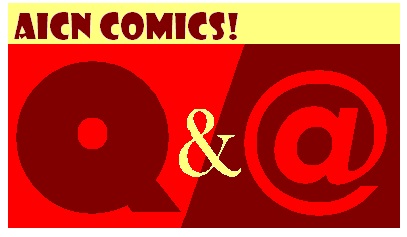
@’s by BEFORE WATCHMEN Writer
J. Michael Straczynski!!!
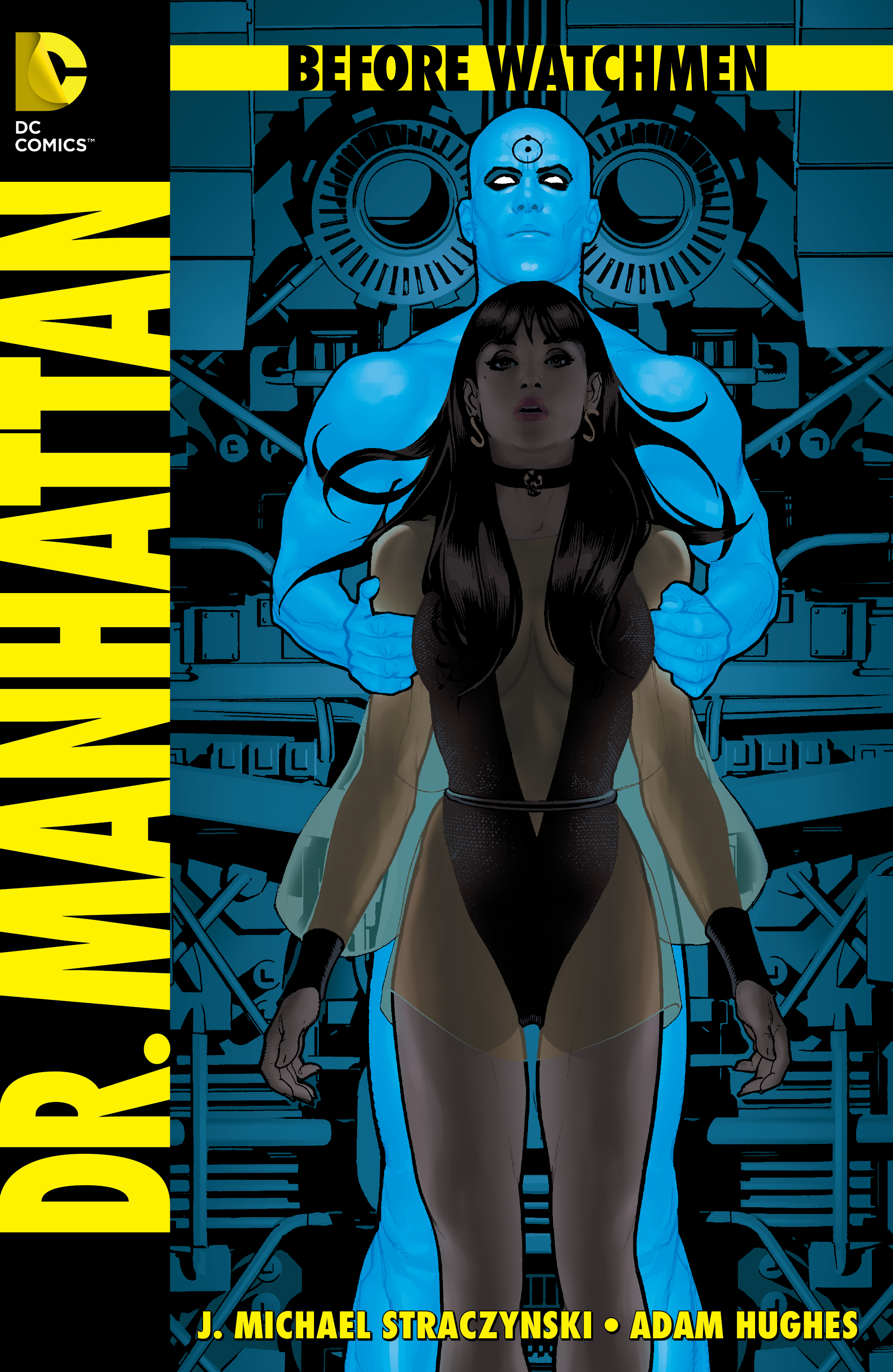 AMBUSH BUG (BUG): How did DC approach you with the idea for BEFORE WATCHMEN? Or did you approach them?
AMBUSH BUG (BUG): How did DC approach you with the idea for BEFORE WATCHMEN? Or did you approach them? J. MICHAEL STRACZYNSKI (JMS): The answer to this lay squarely with Dan DiDio: this is his baby, his idea, he birthed it and if it succeeds, he deserves the lion's share of the credit. (If it doesn't, the lion's share should rightly fall on we the writers, because the characters are solid, the universe is well constructed, and Dan's given us the freedom to do what we want with it, so there's no excuses. Happily, given what I've seen of the art and scripts by the other writers, I think this is going to do gangbusters, both commercially and critically.) So yes: DC, in particular Dan, approached me about this. It's something Dan and I have talked about informally for some time, and I think he deserves huge props for making this happen.
BUG: You're doing the DR. MANHATTAN and NITE OWL miniseries; can you tell me how you approached each of these two extremely different characters?
JMS: What's fun is that in many ways, I have the bookends of WATCHMEN: the most powerful character at one end of the spectrum, and possibly one of the least powerful characters at the other end. But in both cases, in order to tell an interesting story, you have to go down to the human part of that character, even though in the case of Dr. Manhattan some of that has been submerged. I wanted to go more deeply into what made them these characters, beyond putting on a cowl or getting caught in an intrinsic field chamber.
BUG: I know you're an accomplished writer, but did you get any jitters taking these projects given that it was bound to incite controversy from those who believe the original series should be untouched?
JMS: Well, that's the thing, isn't it? Even Alan was working on some ideas for a WATCHMEN prequel around the same time the original miniseries came out, so he certainly didn't think at the time that they should remain untouched. And Alan certainly hasn't shied away from using other people's characters that were originally published in books that lots of people believe should remain untouched (Allan Quatermain,The Invisible Man, Captain Nemo, Jekyll and Hyde, Peter Pan, Professor Moriarty and Mina Harker, to name just a few). The argument against Watchmen gets very slippery.
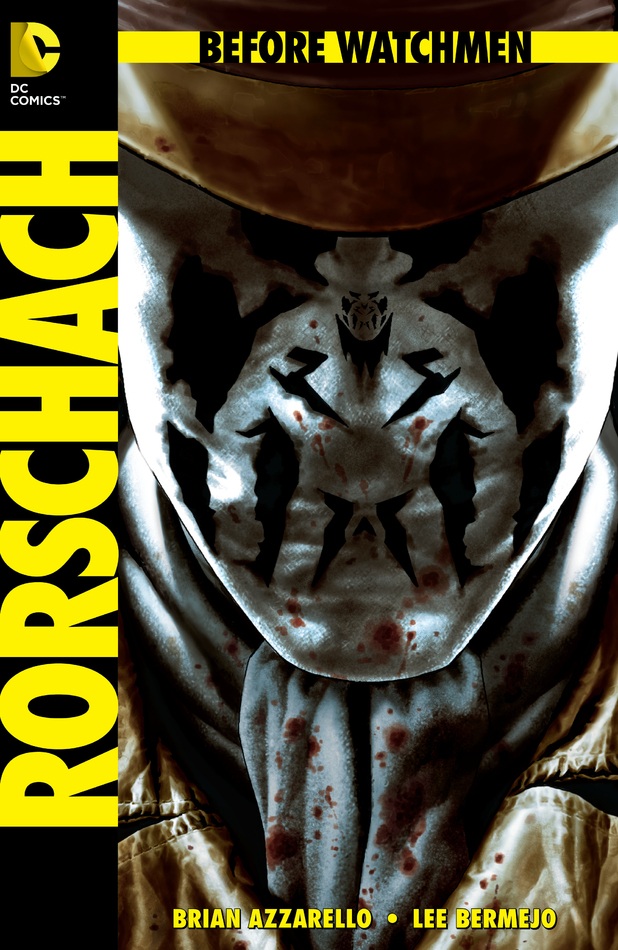 Some say the legal issues (DC does own these characters lock, stock and Owl Ship) isn't the point, that the creator of the book wouldn't approve...okay, so legally, the characters noted above are legally free, but I don't think their creators would have approved of how they are used (e.g., Hyde literally sodomizing the Invisible Man to death). When you mention that part, then they flip to the fact that Alan had a bad contract, and that makes it wrong. But how is it any more wrong than the way any comics creators were treated, especially those who came out of the Golden and Silver Age? Worse than Jack Kirby, who couldn't even get his art back in his failing years? Worse than Siegel and Shuster? I've signed my share of bad contracts -- I have never received a penny in profits on BABYLON 5; my contract is such that if a set burns down on a Warner Bros. movie in Botswana, they can debit it against my share. Everyone in the entertainment business shares one truth: we make the best deal we can at that time. If it's not great, you take your knocks, lick your wounds, and try to make the next one a bit better. You don't sit there bemoaning it forever. Now, when you bring all that up to the naysayers, they flip to "it's a complete work," which goes against what Alan was doing. Then they flip to "well, creators should be more respectful than to come onto someone else's character," forgetting that Alan made his name known by coming onto Len Wein's SWAMP THING, And eventually they circle back to the legalities thing, and we're right back where we started.
Some say the legal issues (DC does own these characters lock, stock and Owl Ship) isn't the point, that the creator of the book wouldn't approve...okay, so legally, the characters noted above are legally free, but I don't think their creators would have approved of how they are used (e.g., Hyde literally sodomizing the Invisible Man to death). When you mention that part, then they flip to the fact that Alan had a bad contract, and that makes it wrong. But how is it any more wrong than the way any comics creators were treated, especially those who came out of the Golden and Silver Age? Worse than Jack Kirby, who couldn't even get his art back in his failing years? Worse than Siegel and Shuster? I've signed my share of bad contracts -- I have never received a penny in profits on BABYLON 5; my contract is such that if a set burns down on a Warner Bros. movie in Botswana, they can debit it against my share. Everyone in the entertainment business shares one truth: we make the best deal we can at that time. If it's not great, you take your knocks, lick your wounds, and try to make the next one a bit better. You don't sit there bemoaning it forever. Now, when you bring all that up to the naysayers, they flip to "it's a complete work," which goes against what Alan was doing. Then they flip to "well, creators should be more respectful than to come onto someone else's character," forgetting that Alan made his name known by coming onto Len Wein's SWAMP THING, And eventually they circle back to the legalities thing, and we're right back where we started.So on this issue, neither Alan nor the detractors have the legal or the moral high ground here. Especially since DC went to him hat in hand repeatedly, offering vast sums of money and then total ownership of the characters, if he'd participate in the creation of more WATCHMEN stories. They would've given him anything he wanted. He opted not to pursue that opportunity. Fair enough, it's his choice and I think you have to respect that. But the operative two words there are "his choice." As I noted elsewhere, if Warner Bros. wanted to do more BABYLON 5, and wanted to give me total creative freedom, all the money I'd need, guarantees of long seasons, and I said no, repeatedly...if I said no and kept on saying no for twenty five years and they finally decided to go ahead on their own without me...whose fault is that? Mine. What right do I have to complain about it? None.
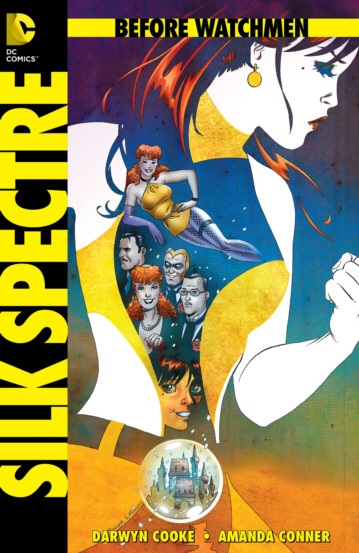 If DC were going to do WATCHMEN and Alan wanted in, if he wanted to give his input, and DC were freezing him out, I would never have taken the assignment and I suspect that's true for many of those involved. But that's simply not the case here. Alan has chosen to remove himself from the process, and after waiting more than two decades for him to change his mind, DC has finally gone ahead and revived characters who may have something of note to say to a contemporary audience. I think that's very fair.
If DC were going to do WATCHMEN and Alan wanted in, if he wanted to give his input, and DC were freezing him out, I would never have taken the assignment and I suspect that's true for many of those involved. But that's simply not the case here. Alan has chosen to remove himself from the process, and after waiting more than two decades for him to change his mind, DC has finally gone ahead and revived characters who may have something of note to say to a contemporary audience. I think that's very fair.I would be a fool if I didn't recognize that this is going to be a controversial move in some quarters. But jitters? No. It's a terrific writing challenge using some of the best characters ever created in the medium. It's a little piece of history. As with all things, though, the work must be judged on its own merits, and I have every trust that most readers will approach this with an open mind.
BUG: Let's talk a bit about specifics; what is a JMS-penned NITE OWL miniseries going to be like?
JMS: We actually know very little about Daniel Dreiberg before he puts on the Nite Owl costume. There are bits and pieces, but not a coherent narrative. So I decided that the best thing I could do would be to extract those individual pieces, put them into chronological order, and try to figure out how he got from A to B to C. There are some fascinating hints: his father was a wealthy banker who left him a vast sum of money, which he uses to pick up from the first Nite Owl. But if you look closer, he was very young when he first contacted Hollis Mason. What drives a kid to go to that extent? How did he find Hollis? What was the cause of his father's death? What was so important to him about becoming Nite Owl? And what happened when he got there? How did he meet Rorschach and what was the nature and tone of that brief partnership? And who the heck is the Twilight Lady?
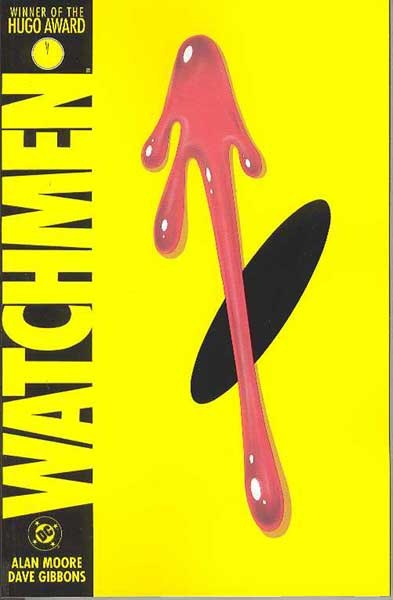 Those questions, and the answers derived from them, form the arc of the four-issue NITE OWL mini.
Those questions, and the answers derived from them, form the arc of the four-issue NITE OWL mini.BUG: Being that Nite Owl is a very derivative character in the first place, how are you making him distinct from a Blue Beetle or a Batman in your miniseries?
JMS: If you look only at the mask, sure, he's just another guy in a cowl fighting crime. So you have to look at the man behind the mask, and Dan Dreiberg has a fascinating history and personality. He's part hero, part fanboy...he starts out really kind of naive and idealistic, and despite everything that happens manages to hold onto a fair amount of that even as late as the original WATCHMEN series. He's not this dark, ominous guy, and for a genre that has been steeped in anti-heroes and half-crazed vigilantes, that's refreshing.
BUG: Are all of the BEFORE WATCHMEN miniseries set in the same time frame?
JMS: Oh, heck no. We're all over the place, depending on what part of a character's life the individual writer(s) wanted to explore. The only commonality they share is that they don't go beyond the first page of the WATCHMEN GN. We are specifically not touching anything after that point as a gesture of respect.
BUG: Were you in contact at all with Alan Moore or Dave Gibbons while putting these stories together?
JMS: No. I ran into Dave at San Diego Comic Con, and I could see he was of two minds about the whole thing. He seemed pleased when Dan introduced me to him as one of the writers, but then again, Dave is a really nice guy and could've been simply concealing his horror for expression later in the privacy of his hotel room. It would certainly explain the midnight screams reported by some.
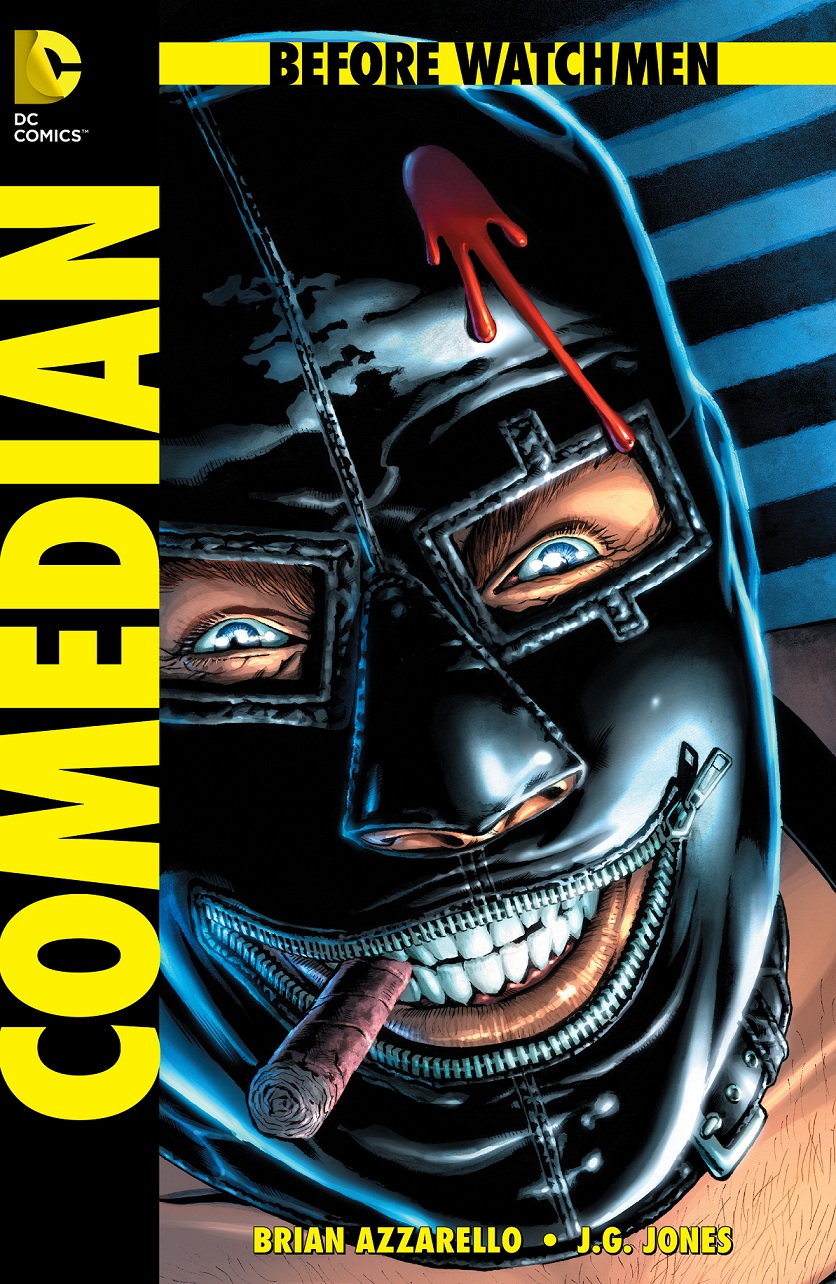 BUG: Is this a finite event or are these series left open in the end for more like them to come? An AFTER WATCHMEN, perhaps?
BUG: Is this a finite event or are these series left open in the end for more like them to come? An AFTER WATCHMEN, perhaps? JMS: Dunno. Nobody's said anything to me about it. That's a Dan DiDio/Jim Lee decision.
BUG: How far are you into writing these miniseries?
JMS: The first three DR. MANHATTAN scripts are finished and in, and I'm nearly done with the last issue as I write this. I'm turning in the third NITE OWL script this week, and I've already jumped ahead to flesh out parts of issue four already, so basically I'm almost done.
BUG: With you finishing up other miniseries that have been postponed or delayed recently, what steps are you making to ensure that these miniseries will be out in time with no delays?
JMS: As noted above, I'm just about done writing both miniseres, and I've been ahead of schedule on delivery from day one. That's the only area over which I have any control. The good thing about taking a multi-year sabbatical from monthly comics is that it means I can devote all my attention to limited-run projects like these when they come along. The artwork I've seen from the Kuberts (issue one is almost entirely drawn now) and Adam Hughes (halfway through one and coming up like gangbusters) is spectacular. So I can see no reason why there should be any delays on either of these. If anything, we'll probably be among the first books to be completed end to end.
BUG: Speaking of time and space, let's talk about Dr. Manhattan. There is a lot of metaphysics going on with the Dr. Manhattan character. I would imagine this is the most difficult character to write. Was it, or do you have a good handle on superhero metaphysics?
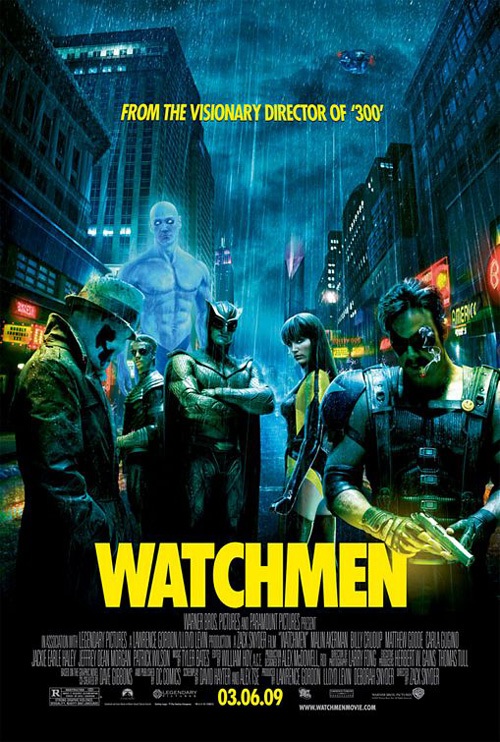 JMS: Coming from a science fiction background, I really wanted to get into the physics of who and what he is, but also the metaphysics behind that as well. So on the one hand, the story is strongly rooted in quantum mechanics and some pretty hardcore physics...but on the other hand, it gets deeply into the question of free will, and how that factors into the equation. I was in Berlin a few weeks ago paying a social visit with the Wachowskis (makers of THE MATRIX trilogy and, most currently, CLOUD ATLAS) and chewing through some of the concepts in the book written so far...we got into a lengthy discussion about how free will can exist in a universe where time is subjective and everything has already happened...what sort of moral choices you can have, and what those choices mean, if every time a choice is made a new quantum universe emerges...we really got into the tall grass, let me tell you. And it was fun, especially since the W's have these amazing twelve-story brains. My hope is that the book will trigger similar discussions among readers.
JMS: Coming from a science fiction background, I really wanted to get into the physics of who and what he is, but also the metaphysics behind that as well. So on the one hand, the story is strongly rooted in quantum mechanics and some pretty hardcore physics...but on the other hand, it gets deeply into the question of free will, and how that factors into the equation. I was in Berlin a few weeks ago paying a social visit with the Wachowskis (makers of THE MATRIX trilogy and, most currently, CLOUD ATLAS) and chewing through some of the concepts in the book written so far...we got into a lengthy discussion about how free will can exist in a universe where time is subjective and everything has already happened...what sort of moral choices you can have, and what those choices mean, if every time a choice is made a new quantum universe emerges...we really got into the tall grass, let me tell you. And it was fun, especially since the W's have these amazing twelve-story brains. My hope is that the book will trigger similar discussions among readers.On the one hand, Dr. Manhattan is the most powerful character in the Watchmen Universe...but also the most helpless, as he sees that he has already made all of his choices, past and future...the things that are going to happen can't be changed because from a quantum perspective, or the perspective of a quantum observer, they have already happened. What a fascinating dilemma! How did he get there? What does that mean in practical terms? Those, again, are the questions that inform the narrative here.
BUG: In your opinion, what worked and what didn't in the WATCHMEN movie?
JMS: The best thing about the WATCHMEN movie is that it was a painstaking recreation of the graphic novel. The less successful thing about the WATCHMEN movie is that it was a painstaking recreation of the graphic novel. Stylistically and emotionally, the movie was cool to the touch, much like the graphic novel...and while that works great in print, film (like television) is a hot medium; it has to be able to reach across the darkness to an audience, grab them by the scruff of the neck, and make them feel something. And in that respect, I don't think it was as successful as it could have been.
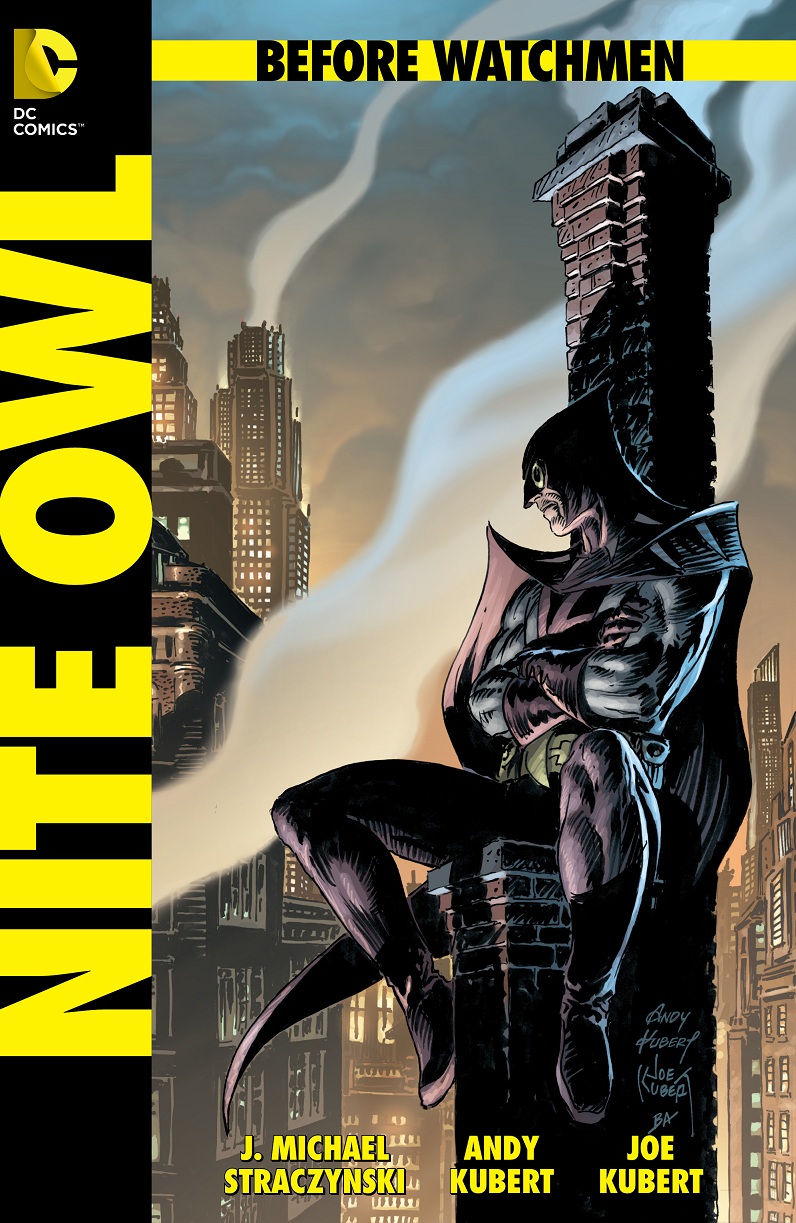 BUG: Since you tend to write in a bold cinematic manner anyway, what are you doing to ensure that the missteps made in the film don't arise in this revisitation to the WATCHMEN Universe?
BUG: Since you tend to write in a bold cinematic manner anyway, what are you doing to ensure that the missteps made in the film don't arise in this revisitation to the WATCHMEN Universe? JMS: We're not making a movie. There were no missteps in the original book, only -- and only to a degree -- in the translation of those printed pages to the big screen. We're still working with printed pages. So I don't think we're in any danger.
BUG: Other than your own, which is the BEFORE WATCHMEN miniseries you're looking forward to reading the most?
JMS: Geez, I keep going back and forth. The Jae Lee work on OZYMANDIAS which we've seen so far is some of the most stunning stuff I've ever seen. Seriously. You could take any one of the pages and frame them in a museum of modern art. It's completely off the grid in that respect. Other than that...for the combination of writing and art, I'd probably say THE COMEDIAN mini: the art by JG Jones is just ridiculously good, and I think Brian Azzarello has done some of his best work here, ever. But quite honestly, these are all really, really solid books: great storytelling and some just freaking amazing art. Everyone involved knows that this is going to be scrutinized in massive detail, and they've brought their A-game to the process. Nobody's resting on their laurels. (And just how is that supposed to be a good thing, anyway? It can't be comfortable. I've never known anyone who's rested on laurels. Do you?)
BUG: Last chance, why should folks be sure to check out NITE OWL, DR. MANHATTAN, and the rest of the BEFORE WATCHMEN miniseries?
JMS: Why check out anything in the comics field? Great writers (well, and me, bringing up the rear), amazing artists, some of the best characters in the form...what's not to check out?
BUG: Thanks so much for taking the time to talk about BEFORE WATCHMEN. I can’t wait to check out all of the books including JMS’ NITE OWL and DR. MANHATTAN when it hits the stands in June!!!
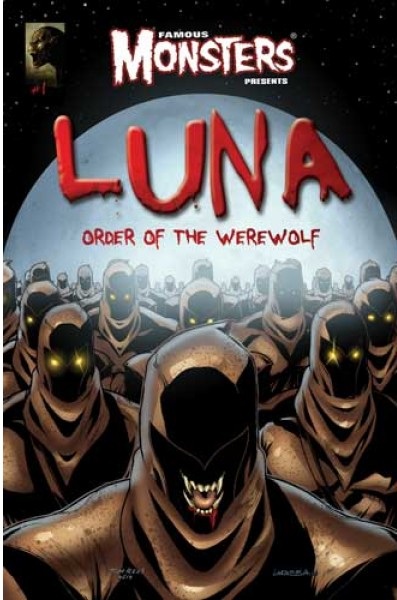
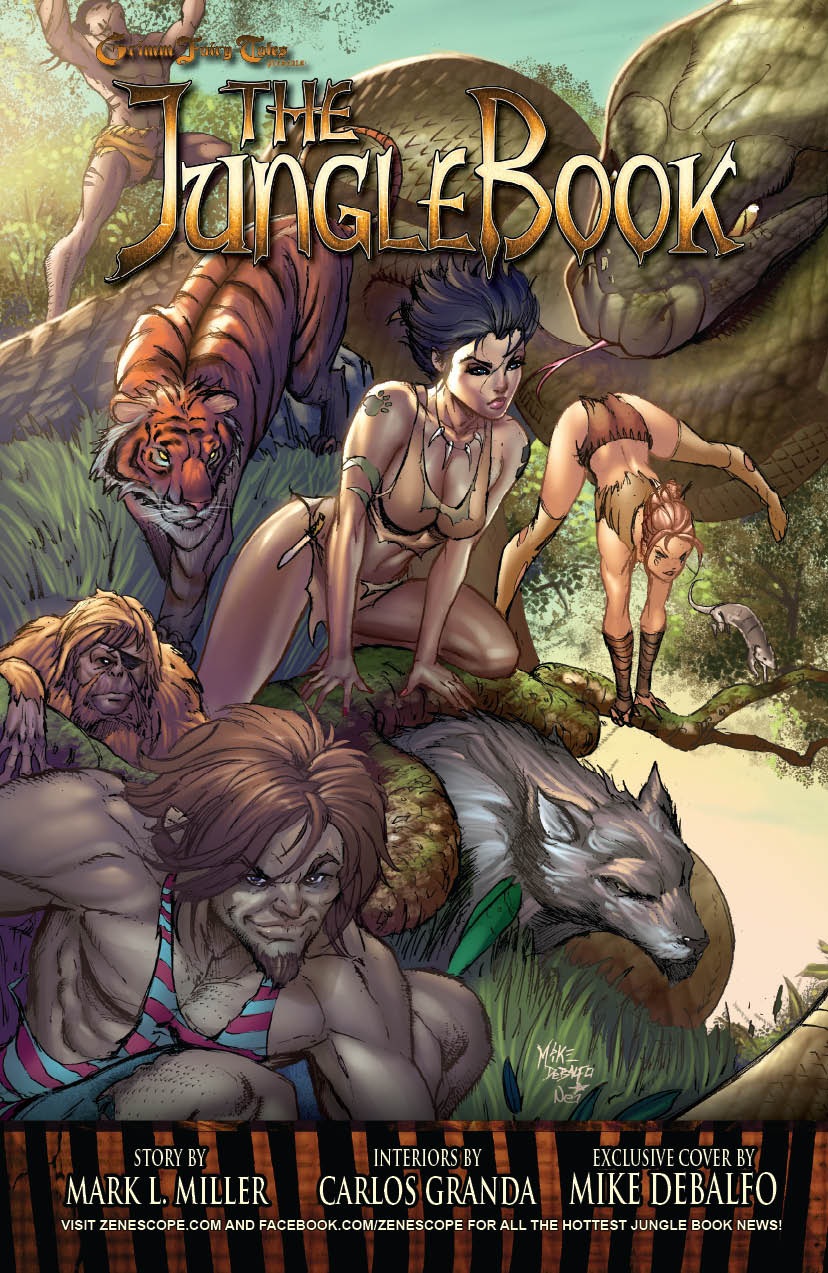 Ambush Bug is Mark L. Miller, original @$$Hole/wordslinger/reviewer/co-editor of AICN Comics for over ten years. He has written comics such as MUSCLES & FIGHTS, MUSCLES & FRIGHTS, VINCENT PRICE PRESENTS TINGLERS & WITCHFINDER GENERAL, THE DEATHSPORT GAMES, WONDERLAND ANNUAL 2010 & NANNY & HANK (soon to be made into a feature film from Uptown 6 Films). He is also a regular writer for FAMOUS MONSTERS OF FILMLAND & has co-written their first ever comic book LUNA: ORDER OF THE WEREWOLF (to be released in October 2012 as an 100-pg original graphic novel). Mark has just announced his new comic book miniseries GRIMM FAIRY TALES PRESENTS THE JUNGLE BOOK from Zenescope Entertainment to be released in March 2012.
Ambush Bug is Mark L. Miller, original @$$Hole/wordslinger/reviewer/co-editor of AICN Comics for over ten years. He has written comics such as MUSCLES & FIGHTS, MUSCLES & FRIGHTS, VINCENT PRICE PRESENTS TINGLERS & WITCHFINDER GENERAL, THE DEATHSPORT GAMES, WONDERLAND ANNUAL 2010 & NANNY & HANK (soon to be made into a feature film from Uptown 6 Films). He is also a regular writer for FAMOUS MONSTERS OF FILMLAND & has co-written their first ever comic book LUNA: ORDER OF THE WEREWOLF (to be released in October 2012 as an 100-pg original graphic novel). Mark has just announced his new comic book miniseries GRIMM FAIRY TALES PRESENTS THE JUNGLE BOOK from Zenescope Entertainment to be released in March 2012.Proofs, co-edits & common sense provided by Sleazy G
